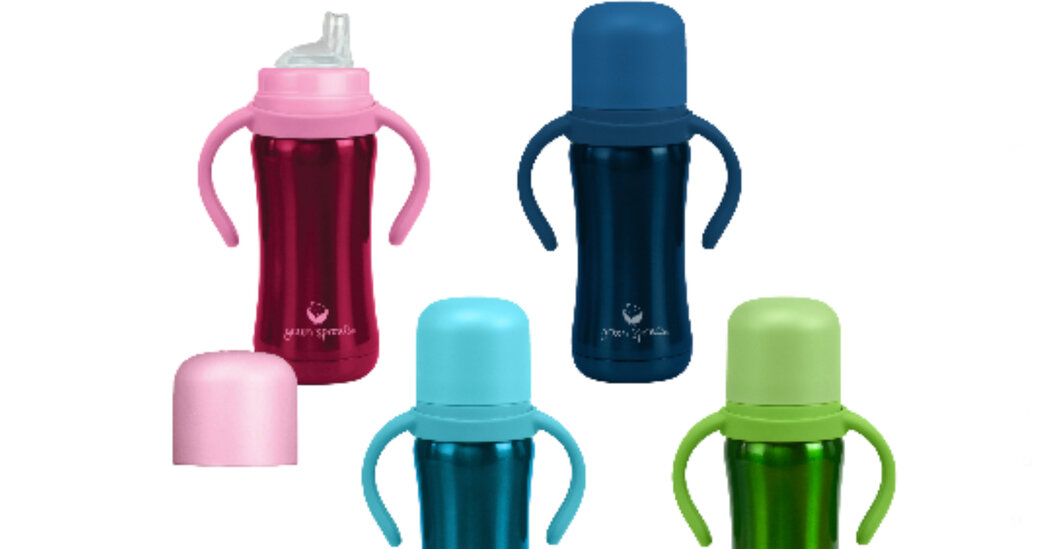A company has recalled about 10,500 toddler bottles and cups due to concerns about lead poisoning in children if a component of the product breaks down, the U.S. Consumer Product Safety Commission said.
The bottoms of these bottles and cups, manufactured by Green Sprouts, can come off and expose a soldering tip that contains lead, posing a potential hazard to children, the commission said in a Wednesday notice.
No injuries were reported, the commission said, but the company is aware of seven incidents where the base broke.
“Lead is toxic if ingested by young children and may have adverse health effects,” the committee said.
Consumers should immediately remove and dispose of the bottles and cups from children, the committee said.
In a statement on its website, Green Sprouts said: “There is negligible risk to the health and safety of users. We are voluntarily assuming the costs and challenges of this recall because the health and safety of our customers must come first.”
The soldering tip, which contains lead, should be inaccessible under normal use, so this section has not been tested by a safety lab, the company said.
“As we approach the redesign of these products, whose benefits for keeping drinks safely cool have made them a popular choice for parents, we will ensure that lead is not used as a soldering material, whether or not it is accessible,” Green Sprouts said.
The plant-based plastic and silicone lid and spout can be reused with other Green Sprouts cups and bottles, the company said.
The recalled products, which were sold in aqua, green, navy and pink, are available in 6 and 8 ounce sizes. They were available at Buy Buy Baby and Whole Foods stores, and online at Amazon, Buy Buy Baby and Bed Bath & Beyond from January 2020 to September 2022, the commission said.
The commission said Green Sprouts is “contacting all known purchasers directly.” Those who purchased the products can contact the company for refunds.
High levels of lead exposure in children can cause comas, convulsions and even death, according to the World Health Organization. Neurological and behavioral effects are believed to be irreversible.
“Children who survive severe lead poisoning may develop intellectual disability and behavioral disorders,” a WHO statement said.

